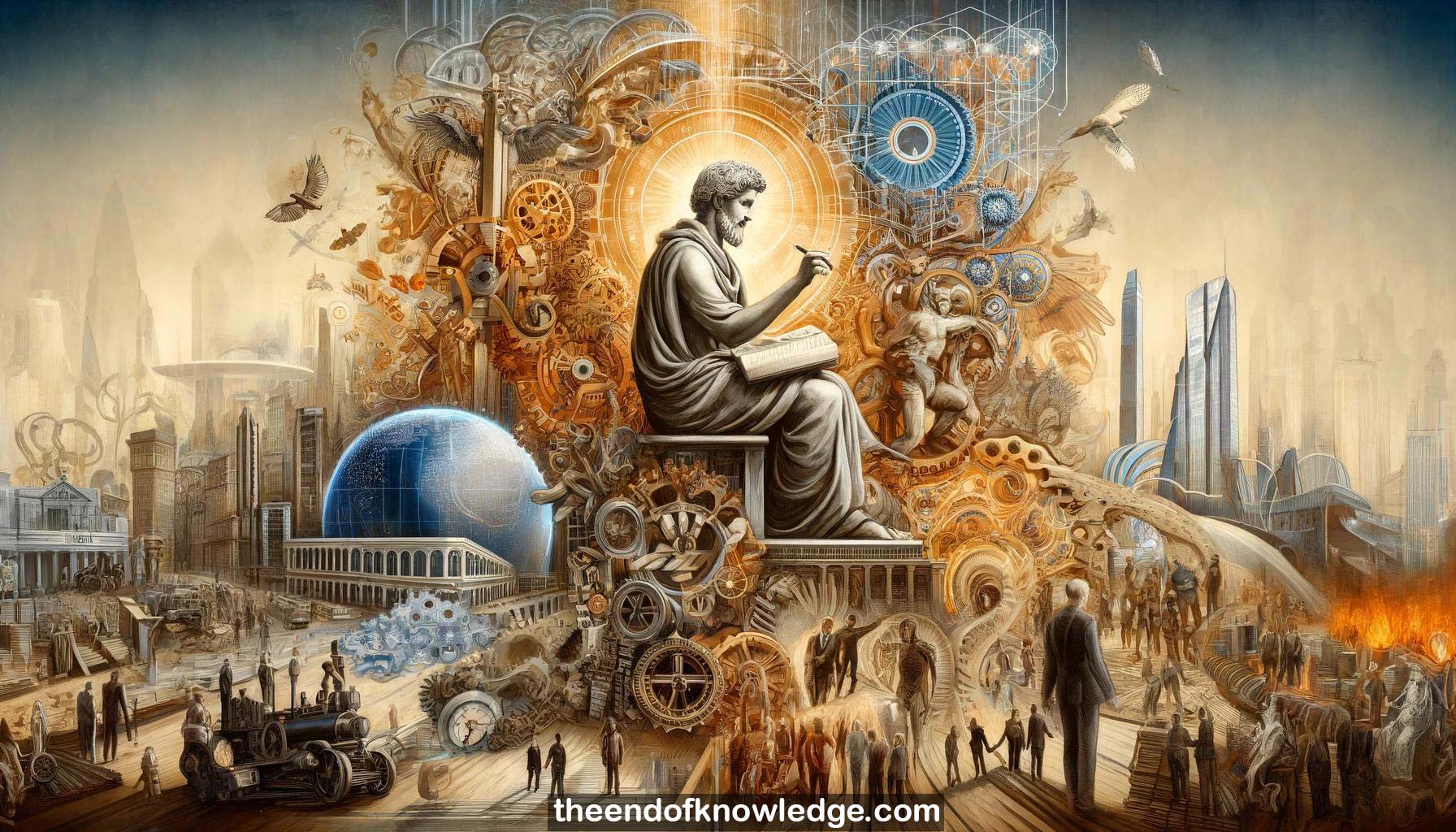 >
>
Concept Graph & Resume using Claude 3 Opus | Chat GPT4 | Gemini Adv | Llama 3:
Resume:
1.-Erik Brynjolfsson is a professor at MIT studying the economic effects of information technology, including AI's impact on jobs.
2.-Major technological changes like the steam engine have triggered steep economic growth but also disruption for some workers in the past.
3.-AI is likely a general purpose technology (GPT) on the scale of steam engines or electricity, with pervasive effects across the economy.
4.-With great technological power comes great responsibility - technologists should consider the societal consequences and steer innovation in a positive direction.
5.-There is a growing backlash and "techlash" against big tech companies over issues like job destruction, false news, algorithmic bias, and monopolies.
6.-Economists agree technology has contributed more to recent wage inequality than globalization, though both play a role.
7.-Horses were once ubiquitous in the economy but were largely replaced by technology - could something similar happen to human labor?
8.-Job losses are correlated with troubling social trends like rising "deaths of despair" from drugs, alcohol and suicide among less-educated Americans.
9.-Technology makes the economic pie bigger overall, but doesn't guarantee the gains are evenly distributed - some may lose even as others benefit greatly.
10.-Recent decades have seen a "great decoupling" where productivity continues to rise but median wages have stagnated, with gains flowing to the top.
11.-Skill-biased technical change has increased the demand and wages for highly educated workers while reducing them for less educated workers.
12.-Superstars in many fields can now leverage technology to reach huge markets and reap outsized rewards, leading to more concentration of wealth.
13.-The share of GDP going to labor has declined while the share going to capital owners and investors has increased.
14.-Machines can now learn to do things like image recognition that we know how to do but can't explain - overcoming Polanyi's Paradox.
15.-Machine learning may impact higher-wage jobs like radiology in addition to lower-wage routine work, unlike previous waves of automation.
16.-No occupation is completely automatable yet based on current technology, but almost all have some tasks that could be automated to some degree.
17.-The effects vary by job - those heavy in clerical work are more affected than those requiring manual dexterity, interpersonal skills, or creativity.
18.-Technologists can choose to develop AI that augments and enhances human capabilities rather than only automating and replacing human jobs.
19.-Policies like education, progressive taxation, wage subsidies, and a stronger safety net can help share the gains from technology more broadly.
20.-Private sector entrepreneurs can develop business models that create more widespread benefits and prosperity from technological progress.
21.-Trends of rising inequality are happening across developed countries, though specifics vary based on different policies and starting points.
22.-Reforming education to focus more on uniquely human interpersonal and creative skills may help prepare workers for the changing economy.
23.-Tax policies currently put a thumb on the scale rewarding capital over labor - arguably this should change to better promote employment.
24.-The reasons for long-term declines in interest rates remain an open question and mystery that economists are still debating.
25.-One theory is that cheap, easily replicable software acts as a new form of capital, driving down returns to both labor and ordinary capital.
26.-In this model, income is increasingly shifted to those who can create innovative new "intangible capital" rather than just providing labor or capital.
27.-There is an important role for technologists, policymakers and entrepreneurs in steering innovation to benefit society as a whole.
28.-The next ten years could be either the best or worst decade ever, depending on the choices made - the future isn't predetermined.
29.-Growing overall wealth alongside increased disruption means gains must be actively and consciously shaped to be shared prosperously and equitably.
30.-Technology itself doesn't decide winners and losers - it's up to us as a society to make those choices through action and policy.
Knowledge Vault built byDavid Vivancos 2024